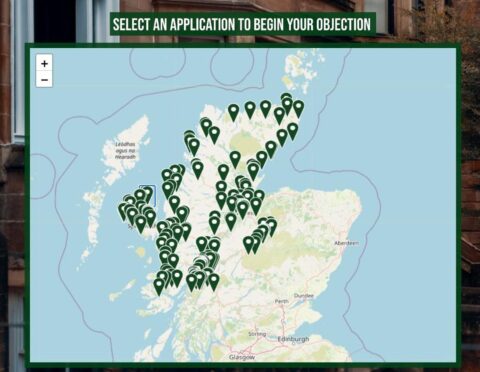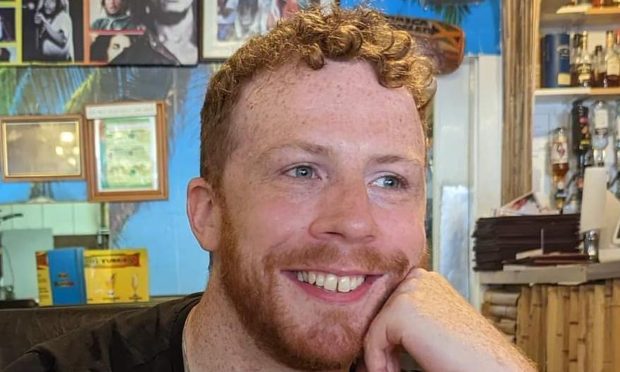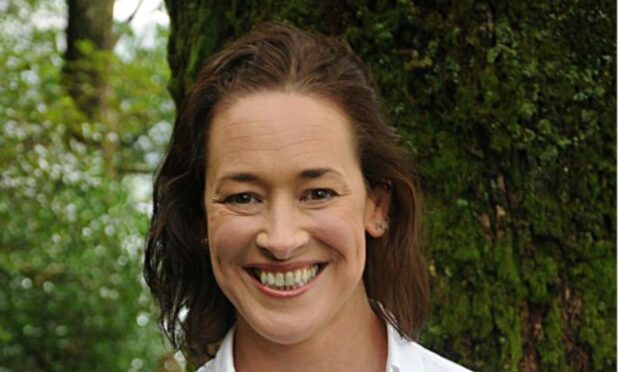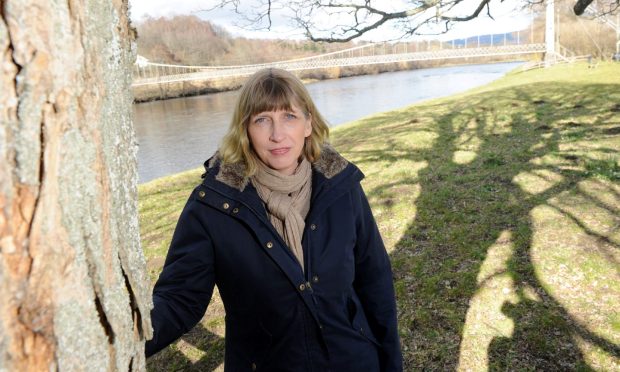A new app will make it easier for residents in the Highlands to object to short-term lets in their area under the new rules – but some landlords are angry.
Gordon Maloney, an organiser with tenants’ rights group Living Rent, has created the online tool so people can find the exact location of holiday homes in their area.
The app allows users to search for specific postcodes and then curates a list of properties applying to become a short-term let in that area.
Under controversial new SNP rules all holiday rental owners in Scotland must now apply for a licence to keep operating.
Landlords must prove they can comply with fire and gas safety regulations, and will face fines of up to £2,500 if they try to dodge the scheme.
Campaigners insist the new laws are needed to tackle the housing crisis in visitor hotspots such as Highlands.
Critics insist the new rules are overly harsh and damage the tourism sector by encouraging short-term let owners to sell up.
Mr Maloney initially launched the app in Edinburgh, where the astronomical number of holiday homes was central to the new rules being put in place.
He is working on expanding the tool to include all the applications in the Highland Council area next.
Mr Maloney, who previously lived on Skye, told the P&J: “Scotland’s housing crisis is particularly acute in the Highlands, and this crisis is made so much worse by the overabundance of short-term lets.
“This app exists to give members of the public a say over their communities, by making it easier to object to new short-term lets in their area.
“In big parts of Scotland – particularly across the Highlands – it is crystal clear that there are far too many short-term lets.”
Scale of short-term lets across Highlands and islands
In June this year, Badenoch and Strathspey brought in new rules to clamp down on holiday lets due to the state of the housing crisis.
In March, community councillors in Oban led calls for an outright ban on short-term lets due to the number of residents waiting for accommodation.
Three months ago we revealed nearly half of all houses in Tiree are taken up by non-permanent residents, despite families wanting to settle down on the island.
And last year, we reported more than 1,700 jobs were vacant in Skye due to a shortage of affordable housing.
Mr Maloney said the app will simply make it easier for concerned residents to find out where short-term lets in their area are situated by showing data that is already available.
However, landlords who are opposed to the new laws claimed short-term rental owners are regularly being subjected to “frivolous” complaints.
Fiona Campbell, chief executive of the Association of Scotland’s Self-Caterers, said: “Self-caterers are already subject to frivolous and vexatious claims about the nature of their business.
“It is unlikely this development will do anything to improve community relations which have been strained by the often toxic short-term let debate.”
“Self-catering properties in the Highlands offer some of the best holiday experiences in the UK, providing a much-needed boost to local economies, unlike the increasing number of empty homes in the area.
“We would respectfully encourage Living Rent to focus their activism on that problem rather than targeting legitimate law-abiding business owners.”
Those who are against the policy unsuccessfully lobbied the Scottish Government to push back the October 1 deadline for applications.
Highland nationalist MSP Fergus Ewing has been a vocal critic of the law.
In July, tourism groups raised fears over the future of the sector as it emerged thousands of landlords were yet to apply for a licence.
Moray owner says policy is ‘nightmare’
Eleanor Bradford, from Moray, who rents out “glamping” hut in her garden, previously branded the policy a “bureaucratic nightmare”.
On the new app, she said: “I am in favour of people having access to information.
“The question is – who is making sure any objection is on reasonable grounds?”
Mr Maloney dismissed the complaints from short-term let operators.
‘Common sense’
He said: “It is nonsense to suggest that the registration process is particularly prohibitive, and it is simply not unreasonable to expect businesses to require registration.
“Nobody would tolerate a restaurant or shop refusing to comply with licensing or safety standards, and there is no reason that short-term lets should be any different.
“This is common sense stuff: ensuring that the tourists taking advantage of short-term lets are safe and that the properties comply with similar standards to normal rental flats.”





Conversation